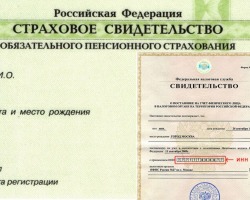In what cases does the employer have the right to punish the employee financially and disciplinary? Look for answers in the article.
Content
- Labor relations, legislation: what is it?
- Who is the labor legislation apply to: which specialists?
- What specialists are not applying to labor legislation?
- What types of penalties for an employee are drunk and who did not work?
- What forms of material punishment can a leader impose on his own?
- What if the employer is unlawfully punishes the employee?
- What is not a disciplinary sanction?
- How to draw up a disciplinary or material penalty?
- Video: TOP 5 of the most common violations by the employer
- Video: When does the employee have material liability? Labor law
- Video: How to punish an employee by law - Elena A. Ponomareva
At work, there may be different situations in labor relations. Almost all employees are legally illiterate and do not know why the employer has the right to punish them financially, and whether he acts legitimate in certain cases.
Read on our website another article on the topic: "How not to fall under abbreviation?". You will learn about the rights of workers during reduction.
We will tell you in what cases and how the employer can punish his employees. Read further.
Labor relations, legislation: what is it?

Labor relations are public relations regulated by labor law. The subjects are an employer with an employee.
Legislation is a system of legislative acts adopted by the representative body.
Who is the labor legislation apply to: which specialists?
The norms of the Law on Labor must equally regulate the activities of all working people in the Russian Federation, including foreign, visitors and working in our country. In addition, the effect of acts of labor law in the Russian Federation is transferred not only to relations at work, but also to all aspects related to them.
If we compare foreigners and Russian workers, then for the former there are some restrictions on the spread of labor rights. So, foreigners can work on the territory of the Russian Federation only when they will have relevant permits and if they reach eighteen years. For Russian experts, the presence of such papers is not required, and the age established to conclude an agreement is sixteen years.
In addition, foreigners do not have the right to engage in specific types of classes - this is a municipal service, a defense complex of the Russian Federation.
What specialists are not applying to labor legislation?
The norms of the Law on Labor do not apply to military personnel in the execution, employees working under the contract, specialists from the supervisory authorities, provided that they do not have an employment with the company.
What types of penalties for an employee are drunk and who did not work?
The employer to blame the employee has the right only on the basis of the law, the Labor Code of the Russian Federation. The law distinguishes two groups of punishments: disciplinary and material.
There is such a damage caused to the company by an employee:
- Reducing or deterioration of the company's capital.
- Deterioration of property not belonging to the employer, but who is with him.
The code examines several types of punishments:
- Comment - This is the softest punishment for an employee who is often received from the leader for being late from lunch, for rudeness. This type of punishment is oral. It is issued if the company has not suffered damage.
- Rebuke - This is the most stringent penalty for an employee who is received from the manager for being late for a significant meeting, for the foiled approval, for unprepared work, and for gross mistakes in business. It is issued if the company has suffered damage.
- Deprivation of free dinners: temporarily or constantly.
- Changing the position in the queue for the receipt of cores. Square.
- Inadequate to profitable, large projects.
- Dismissal - It happens in the most difficult situations when an employee does not cope with his duties and maliciously violates discipline at the enterprise and contractual relations. This is the termination of the relationship of the employer and the employee for serious violations: constant delay, intoxication at the workplace, disclosure of secrets, theft.
There are no other punishments, and if the leader wants to come up with them, then the employee will calmly win in court.
What forms of material punishment can a leader impose on his own?

You should know that only for one error is there only 1 disciplinary punishment. If the employee skipped his work day, and the employer reprimanded him, after which he thought that this was very soft, then he could not fix anything. So, what forms of material punishment can the leader impose on his own?
The employer in the right to apply such a material penalty as:
- Deprive the bonus. This is an encouragement, not a disciplinary sanction. The employer cannot take the bonus from the employee if he does not have a clear bonus system. But, if it is indicated in the local acts of the company, then the manager has the right to deprive an employee of the bonus. Another nuance - an employee must familiarize himself with this act and put a signature in paper.
- Hold the damage from the employee's salary. The employee is responsible for the working inventory, therefore, the employee himself must incur losses associated with damage to this property. The damage is counted to a penny and subtracted from the salary after they took an explanation from the employee himself. Next, the order to keep. But deductive from salaries per month have rights in the amount of not more than twenty percent of the salary.
In order to make retention to the leader should:
- Assess the damage caused by an employee for the company.
- Find out the cause of the damage, determine the guilt of the employee, collect evidence.
- Draw up the results of the audit and recovery of damage to the employee. For example: the employee accidentally spilled tea on the keyboard, in this case he is obliged to compensate for the damage to the company or the employer. But there is such a definition as a missed benefit. For example: the employee went on a business trip and did not appear at an important meeting, and the company missed a profitable deal, then there is nothing to compensate for.
- Reduce wages for a poorly completed task. The leader may legally cut off the salary for marriage or for an unfulfilled task. For this, the employment contract must prescribe the norms of development and quality criteria.
For example, the confectioner baked two cakes instead of the promised three, then the wages are cut. If the confectioner has cakes, then this is a marriage, which means that the confectioner does not give a salary.
What if the employer is unlawfully punishes the employee?
The Labor Code has its subtleties about the punishment of people, therefore, in order to hold an employee to justice, we must follow the law. What if the employer is unlawfully punishes the employee? This is what the employee has the right to:
- Carry out verification work in the company. Of course, the employee himself will not be able to do this, but he has the right to inform the appropriate and higher authorities about violations.
- Attach an order in the judicial authorities and recover at work.
- Collect a salary for forced absenteeism from the company.
- Collect compensation for moral damage.
But the punishment will not be able to challenge if the employee was familiarized with the current requirements and signed in the relevant documents. For example, the provision states that employees must have a special dress code-white top, black bottom. The employees got acquainted and signed the documents, and on one of the days one of the women came in a bright blue dress to work, for this she can be attributed to a disciplinary sanction.
What is not a disciplinary sanction?
This happens when employees are punished for violation financially in the form of fines, is this legal? What is not a disciplinary sanction?
- Practice confirms that fines contradict the Labor Law in the Russian Federation.
- For a fine to the employee, the employer runs the risk of paying from a thousand to five thousand rubles.
- But it is worth noting that the regulatory documents of the enterprise often have a clause that if a person is late for several minutes, then he is punished and retained several percent of the salary. This is illegal, since this item is contrary to the Labor Code. In this case, a person can only be presented to a person.
Below even more useful information. Read further.
How to draw up a disciplinary or material penalty?

To draw up a disciplinary or material penalty from a person, it will take a lot of time, effort, and patience. After all, in order to punish, you need to collect all the documents and know the subtleties of the Labor Code. How to do this right? Here is the sequence of actions for the competent design of the disciplinary or material penalty:
- Fix a person’s violation in official paper.
To do this, you need to prove this violation:
- Witness's testimonies
- Posts from surveillance cameras
- Records from throughput systems
Documents in this case are reports, acts, decisions of the internal commission. The most important thing is that the document is spelled out: surname, name, patronymic of the violator, position, date and time of violation, department, full -time name and their signatures.
If a person did not come to work and did not even indicate the reason, does not contact the leader? In this case, they draw up an act on the absence of an employee at the workplace. At least two people are obliged to approve it - this will serve as an evidence base.
- Request an explanatory note from a subordinate.
According to the law, in order to bring a note is given at least 2 slave. DN., you can and more. This document should indicate:
- The reason for the violation by the employee of the contract, discipline, etc.
- Papers in which all responsibilities violated by the employee are enshrined.
- The time and place where the employee must bring an explanatory note.
IMPORTANT: If you are an employer and compiled a paper in which you recorded a violation of the employee, but hurried and raised without explanation, then remember that this is illegal.
Also, the employee can refuse to write an explanatory note. This is done if the employee did not bring this document within the prescribed time. The form of writing such a document is arbitrary, but it is necessary to indicate the date of compilation and presentation, the essence of the act.
- Learn the causes of the violation.
You should always carefully consider the case, this is exactly what any court does. Even if the employee is guilty and deserves punishment, the severity of the act should be taken into account. For example, you should not reprimand the employee if he was late from lunch for five minutes and the company did not incur losses from this. It is important to know and find out:
- Under what circumstances there was a violation. For example, the employee was mistaken due to poor health.
- Employee behavior before the incident. For example, if earlier a person did not violate any rules, and for the first fifteen -minute delay received a reprimand - this is wrong.
- A person’s relationship to work and his achievement.
- The presence of failures at the workplace of a person in the past.
All this affects how rude the punishment of a person for misconduct will be.
- Draw up a disciplinary or material penalty.
If a person’s guilt is proven, then they draw up an order for a disciplinary sanction: comment, reprimand, dismissal. Material penalty is also carried out on the basis of the order. The disposal must indicate:
- Surname name patronymic
- The essence of the violation
- Circumstances in which a violation occurred
- Documentation of the company, acts of labor law
- Explanatory, memos, acts
The employee is obliged to study the order within 3 days.
- Make an act on the refusal of the signature of the order on the disciplinary sanction.
If a person does not want to sign the order, then the employer draws up an act about this. It must be indicated in it by the date and time of compilation. At least 2 people should sign.
- The procedure for removing disciplinary and material punishment from an employee.
The removal of punishment from an employee takes place in a year if he has not violated anything else during this time. But the employer can relieve a violation before the year according to such reasons and documents:
- On a personal initiative
- Based on the request from the head, indicating that the employee did not violate anything else and worked in good faith
- At the request of a guilty person
- Based on the opinion of a senior body
In order to remove the punishment from the employee in advance, the employer must draw up an order, which must indicate the reason this occurs, the number and date. The recovery takes place after the employee of damage caused to the company or the employer.
Video: TOP 5 of the most common violations by the employer
Video: When does the employee have material liability? Labor law
Video: How to punish an employee by law - Elena A. Ponomareva
Read on the topic:
- How to politely refuse the employer to get a job?
- How to get an interview on Skype with the employer?
- When is the employer to inform the employer about pregnancy?
- What to write about yourself, how to characterize yourself in a resume?
- How to write in the questionnaire unemployed or temporarily non -working?
- How to write a characteristic for an employee, an employee from the place of work?







